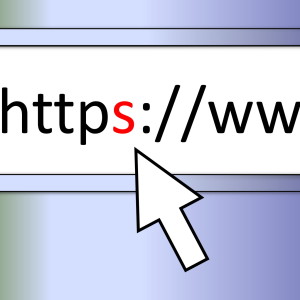 Just recently, SearchMetrics, one of the top market leaders in internet marketing and search analytics, announced their 2014 SEO ranking factors study to guide webmasters and internet marketing specialists all over the world.Read More
Just recently, SearchMetrics, one of the top market leaders in internet marketing and search analytics, announced their 2014 SEO ranking factors study to guide webmasters and internet marketing specialists all over the world.Read More
Should You Switch to HTTPs for SEO Boost?
 Google recently announced that it will provide a small search ranking boost to websites that will switch from HTTP to HTTPs. In its announcement, Google stated that the reason behind this move was about security, ensuring web users that the results for their searches are not only relevant, but safe and protected, as well.Read More
Google recently announced that it will provide a small search ranking boost to websites that will switch from HTTP to HTTPs. In its announcement, Google stated that the reason behind this move was about security, ensuring web users that the results for their searches are not only relevant, but safe and protected, as well.Read More
Major SEO Change for Content Creators, Online Marketers
 Google announced a major change in regards to adding and maintaining news-related content on its Google News aggregation and search.Read More
Google announced a major change in regards to adding and maintaining news-related content on its Google News aggregation and search.Read More
Simple SEO Strategies for Small Businesses
 While there are hundreds of qualified internet marketing firms that are ready to lend a helping hand in providing effective SEO strategies to your company, not all small businesses have the budget to hire professional SEO experts. Fortunately, search engine optimization does not involve magic tricks or secret recipes. Anyone can effectively promote their business without the need of technical knowledge or advanced programming skills.
While there are hundreds of qualified internet marketing firms that are ready to lend a helping hand in providing effective SEO strategies to your company, not all small businesses have the budget to hire professional SEO experts. Fortunately, search engine optimization does not involve magic tricks or secret recipes. Anyone can effectively promote their business without the need of technical knowledge or advanced programming skills.
Below are the best practices and basic concepts of SEO for small businesses.Read More
How Long Everything Online Should Be According to Studies
 If you’re wondering how long your tweets, Facebook posts and Google Plus headlines should be, Kevan Lee has created for Social Media Today a list of the ideal length of everything online.
If you’re wondering how long your tweets, Facebook posts and Google Plus headlines should be, Kevan Lee has created for Social Media Today a list of the ideal length of everything online.
According to Lee, solid research had been done to determine how long tweets, titles and posts should be for them to be effective. Tweets, for instance, should be 100 characters. The ideal length of a Facebook post, on the other hand, is less than 40 characters. Slightly longer is the ideal length of a Google Plus headline, which is pegged at less than 60 characters.
To read the article in full, click here.
Google Braces For Removal Requests Following EU RTF Ruling
 The residents of Europe who are worried some of their information on public record and published online might ruin their reputation now have the right to request the removal of that information from search results, and Google is bracing for countless such requests from 28 countries in Europe.
The residents of Europe who are worried some of their information on public record and published online might ruin their reputation now have the right to request the removal of that information from search results, and Google is bracing for countless such requests from 28 countries in Europe.
Citing a story by Reuters, Search Engine Land says a European Court has ruled that everyone on the continent has a “right to be forgotten” (RTF). With the ruling, individuals can now request and eventually demand that search engines—Google included—remove from search results any unflattering or undesired information about themselves even if the said content is legally published and maintained. A personal bankruptcy is one such undesired information that an individual can request to remove from search results.
Click here to read more.
Bing Snapshot Results Now Has Food and Drug Info
 The Bing’s library of facts has just gotten bigger with the expansion of its Snapshot feature, which now allows users to get quick access to information about drugs and food.
The Bing’s library of facts has just gotten bigger with the expansion of its Snapshot feature, which now allows users to get quick access to information about drugs and food.
Appearing in the Snapshot area on the right side of Bing’s search results, the food and drug results present information that any user can digest at a glance. Upon closer inspection, the information is incredibly detailed, from different brand names of a drug to its known side effects, all neatly laid out in a Snapshot.
Click here to read the article in full.
Yahoo Search Share Likely to Slip Below 10 Percent Next Month
 Despite its partnership with Microsoft, Yahoo’s search share continues to dip, as its rankings in comScore’s “May 2014 U.S. Search Engine Rankings” is likely to hit below the 10 percent mark, according to SearchEngineLand.
Despite its partnership with Microsoft, Yahoo’s search share continues to dip, as its rankings in comScore’s “May 2014 U.S. Search Engine Rankings” is likely to hit below the 10 percent mark, according to SearchEngineLand.
SearchEngineLand bases its prediction on the comScore’s rankings last month, when Yahoo only managed to record a 10% share, down 0.1 percent from March. In contrast, both Microsoft and Google registered a 0.1% increase from March.
If the predicted ranking of Yahoo on the next comScore report comes true, it will represent the lowest recorded search number for the pioneering search engine since comScore started making the reports.
Yahoo’s rankings are a far cry from its 19.3 share of the US market in July 2009, when its partnership with Microsoft was announced. While Microsoft’s search share steadily rose, Yahoo’s continually declined over the years.
To read the story in full, click here.
Get Back to Basics and Boost Website Traffic
 Many online marketers these days are too preoccupied with keeping up with the most recent marketing trends or getting bottom-line results that they forget that basic step towards achieving a successful inbound strategy: attracting more visitors to the site. Before you can get those results you need, you have to get strangers to drop by your site first.
Many online marketers these days are too preoccupied with keeping up with the most recent marketing trends or getting bottom-line results that they forget that basic step towards achieving a successful inbound strategy: attracting more visitors to the site. Before you can get those results you need, you have to get strangers to drop by your site first.
While we all know that putting that into practice can get pretty tough, generating traffic is certainly not impossible, as we can see in the success of countless websites out there. Without a doubt, the people running these successful websites know and apply certain approaches and techniques towards increasing their visitors, and they are all pretty basic ones. Yes, you can boost website visitors by getting back to basics, and here are some of those techniques you can certainly use.
How To Tell If Your Website Has Been Manually Penalised by Google
 Google has been actively penalising websites caught violating its webmaster guidelines in any way, shape or form, and that has kept countless webmasters on their toes. So how can you tell if your website has been manually penalised by Google, especially if you’ve noticed a significant loss of Google search traffic? Here are some tips to help you figure out exactly what went wrong and got you on the bad side of Google.
Google has been actively penalising websites caught violating its webmaster guidelines in any way, shape or form, and that has kept countless webmasters on their toes. So how can you tell if your website has been manually penalised by Google, especially if you’ve noticed a significant loss of Google search traffic? Here are some tips to help you figure out exactly what went wrong and got you on the bad side of Google.
